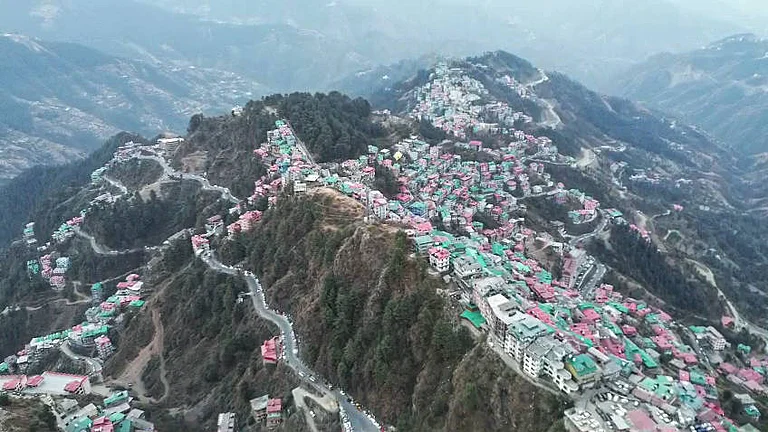Indradev Kadidal is a writer and technologist based in El Dorado Hills, California. His nostalgic essays, often laced with wry humour, revisit the rhythms of life on Chikkamagaluru’s coffee plantations — echoes of childhood summers spent in the red-soiled hills of the Malnad. When not writing, he works at the crossroads of AI, storytelling, and social impact.
A leopard walks up to a British Raj-era members-only club in a sleepy coffee town and demands to be let in. Roar! Roar! Who’s in?
Sounds like the start of a bad joke, right? Except this isn’t fiction — it’s the real story of what happened a few years ago in Chikkamagaluru, in my home state Karnataka. A small hill town known for coffee and eccentric coffee planters, Chikkamagaluru has its own unique ecosystem — and not just in the surrounding coffee plantations. The town’s weekly farmer’s market, or santhe, turns its two main streets into a carnival of chaos: out-of-town farmers bartering over produce and basic necessities, ex-jutka horses wondering why they retired, stray cows competing for old newspapers to munch on, small-time politicians running imaginary campaigns and hordes of townspeople, of all ages, cruising the streets on foot, for no reason at all — just like my cousins and I did as school kids when we landed up there to visit our grandparents during summer holidays.
All of them outdone by one surprise guest.
Enter: Leopard.
Now, an average leopard in search of a snack might head for the town’s mutton market behind the bus stand or a miltry hotel (that’s a “non-veg hotel” to the uninitiated) hidden in one of the town’s side alleys. But this was no ordinary feline. True to its genus, this was Pantheras Chikkamagalurius — a refined, discerning, socially ambitious beast. It headed straight for the town’s crown jewel of colonial hangover and exclusivity: The Kadur Club.
Reflecting its proud upbringing, this leopard did not try to jump over the compound wall or sneak in from the back door. Neither did it use the time-tested Chikkamagalurian’s “secret password” — “I am so-and-so’s so-and-so” — to gain entry. No. This was a creature of class. Like a proper gentleleopard, it marched up to the main gate and demanded to be let in.
One can only imagine the crushing humiliation when the club’s underpaid, overconfident gatekeeper stood his ground. “Members only!!” he declared, with the finality of a British viceroy. Worse still, he casually informed our leopard that the current waiting period for membership was about 100 years.
Let’s put this in perspective: If by some miracle, our leopard simultaneously managed to pin down five rubber-necking club members by their jugulars and got them to propose and second its membership application today, its great-great-great-grand-cubs might have a shot at entry many feline generations down the road. If such a feline generation even exists at that future date.
This is not just a one-off wildlife encounter. It’s a furry metaphor for a larger issue plaguing modern India: the absurdly long waiting periods for entry into clubs built on the ghosts of colonial social hierarchies. Places that once opened their arms (and liquor cabinets) to the coffee barons of yesteryear now take delight in slamming the door in the face of today’s up and coming coffee planters — and in the face of the occasional big cat.
Because the real endangered species here isn’t the leopard. It’s the Chikkamagaluru coffee planter. Once the toast of the town, now rudely asked to wait. And wait. And wait.
Generations may pass. Seasons will turn. The leopard might come back. But that membership? Still pending.
So next time someone asks what’s driving leopards into towns, remember: it’s not deforestation. It’s the thirst for relevance. And maybe a gin and tonic at the Kadur Club.
Disclaimer : This is a sponsored article. All possible measures have been taken to ensure accuracy, reliability, timeliness and authenticity of the information; however Outlookindia.com does not take any liability for the same. Using of any information provided in the article is solely at the viewers’ discretion.




















